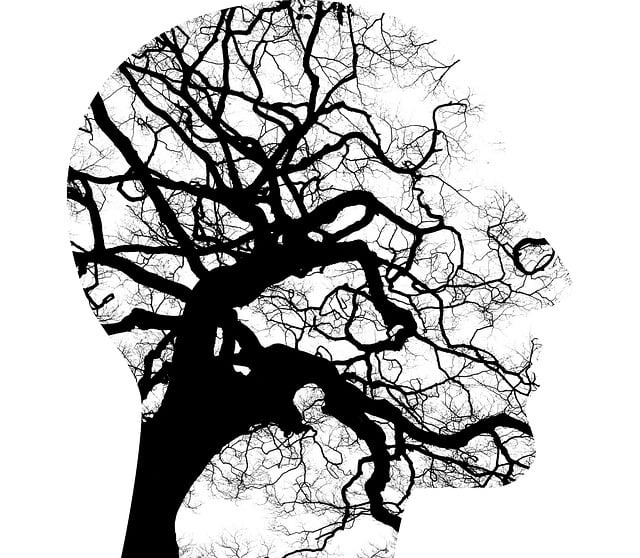Public awareness campaigns play a pivotal role in tackling mental health issues, especially Denver Panic Disorder and Anxiety Attacks, by reducing stigma, encouraging help-seeking behaviors, and normalizing conversations. These initiatives empower individuals to manage symptoms through self-care routines and improve access to local therapy resources like Denver panic disorder and anxiety attacks therapy centers. Measuring success involves tracking public knowledge gains and behavioral shifts, demonstrating the lasting impact on mental well-being and community support for those affected by these disorders.
Public awareness campaigns play a pivotal role in mental health initiatives, especially in addressing prevalent issues like Denver panic disorder and anxiety attacks. These campaigns serve as powerful tools to educate communities, reduce stigma, and encourage individuals seeking therapy. This article delves into the development of effective awareness programs, exploring key strategies for success. We examine why such initiatives are crucial and how they can impact the well-being of affected individuals, with a focus on Denver panic disorder and anxiety attacks therapy.
- Understanding Public Awareness Campaigns: Why They Are Essential for Mental Health Initiatives
- Designing Effective Denver Panic Disorder and Anxiety Attacks Awareness Programs
- Measuring Impact and Success: Evaluating the Effectiveness of Public Education Strategies for Anxiety Disorders
Understanding Public Awareness Campaigns: Why They Are Essential for Mental Health Initiatives

Public awareness campaigns play a pivotal role in shaping societal understanding and acceptance of mental health issues, including panic disorder and anxiety attacks. These initiatives are crucial for breaking down stigmas, encouraging individuals to seek help, and fostering an environment where open conversations about mental well-being can thrive. By shedding light on the prevalence and impact of conditions like Denver Panic Disorder and Anxiety Attacks Therapy, campaigns raise awareness that these are real, treatable disorders that affect millions worldwide.
Through creative messaging and targeted strategies, public awareness efforts can inspire self-esteem improvement, promote stress management techniques, and encourage the development of a consistent self-care routine for better mental health. By empowering individuals with knowledge about available resources and treatment options, such campaigns contribute to a more supportive and compassionate community, ultimately leading to improved access to quality care and enhanced overall well-being.
Designing Effective Denver Panic Disorder and Anxiety Attacks Awareness Programs

Designing effective Denver panic disorder and anxiety attacks awareness programs requires a multi-faceted approach that combines education, support, and practical strategies. Programs should start by normalizing conversations around mental health, breaking down stigma associated with anxiety disorders. Incorporating self-awareness exercises and self-care practices can empower individuals to manage symptoms, emphasizing the importance of early intervention and continuous care.
Cultural sensitivity in mental healthcare practice is paramount. Awareness campaigns must cater to diverse communities, understanding that anxiety presents differently across cultures. By integrating culturally relevant resources and support systems, these programs can reach a broader audience, ensuring accessibility and inclusivity. Denver panic disorder and anxiety attacks therapy benefits greatly from such initiatives, fostering a more supportive and aware community.
Measuring Impact and Success: Evaluating the Effectiveness of Public Education Strategies for Anxiety Disorders

Measuring the impact and success of public education strategies is paramount when addressing issues like anxiety disorders, especially in urban centers like Denver. Effective campaigns aim to raise awareness, reduce stigma, and empower individuals to seek help. One key metric is tracking changes in public knowledge about anxiety, its symptoms, and available treatments. This can be achieved through pre- and post-campaign surveys gauging understanding of anxiety disorders and the resources offered by local therapy centers, such as those specializing in Denver panic disorder and anxiety attacks therapy.
Additionally, evaluating success involves measuring behavioral shifts. For example, increased calls to crisis hotlines or website visits related to mental health could indicate growing awareness and openness in discussing anxiety-related issues. Moreover, examining long-term outcomes, such as improvements in mood management skills through mindfulness meditation practices encouraged by public education initiatives, can demonstrate the lasting impact of successful campaigns aimed at tackling Mental Illness Stigma Reduction Efforts.
Public awareness campaigns play a pivotal role in promoting mental health, particularly regarding Denver panic disorder and anxiety attacks. By educating communities through well-designed programs, we can reduce stigma, encourage early intervention, and improve access to evidence-based therapy like that available for Denver panic disorder and anxiety attacks. Evaluating the success of these initiatives is crucial to refining strategies and ensuring their impact. Through continuous improvement and data-driven approaches, public education strategies can significantly enhance the well-being of individuals affected by anxiety disorders.












